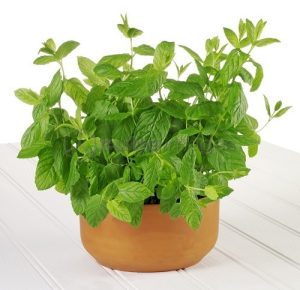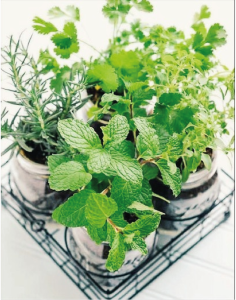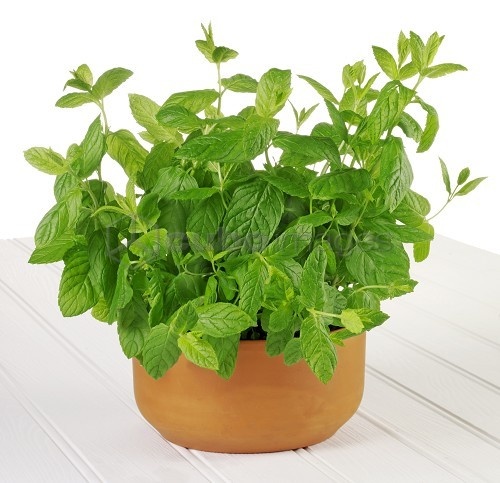Introduction:
Meet our esteemed panel of botanists, true maestros of the plant world. With years of experience and research, these experts have unlocked the secrets to cultivating immune-boosting herbs. In this article, we’ll delve deep into their knowledge, unveiling advanced techniques for growing herbs that can strengthen your immune system and transform your lifestyle. Whether you’re a seasoned green thumb or just starting your herb garden, get ready to explore the fascinating realm of botanical healing.
Botanical Bounty
Our botanists are here to introduce you to the stars of the herbal world. From echinacea to astragalus, explore a comprehensive list of immune-boosting herbs you can cultivate in your own garden. You might have heard of echinacea, famed for its immune-boosting properties. This herb, with its purple-petaled flowers, can be an excellent addition to your garden. It’s known for its ability to support your body’s natural defenses against illnesses. Another gem to consider is astragalus. This herb has been used in traditional Chinese medicine for centuries to strengthen the immune system. Astragalus thrives in well-drained soil and can be a valuable addition to your immune-boosting herb collection.
Growing Techniques
Take your gardening skills to the next level. Our botanists share their expert insights into cultivating herbs with advanced techniques. Learn about soil composition, optimal light conditions, and special care instructions that will ensure a bountiful harvest.
Herbs like oregano, thyme, and rosemary thrive in well-drained, sandy soil. If you’re growing these in pots, ensure the containers have proper drainage. For plants like echinacea and astragalus, loamy soil with good drainage is ideal.
When it comes to light, most herbs prefer full sun, meaning at least 6 hours of direct sunlight. However, herbs like mint and parsley can tolerate partial shade. Understanding the light needs of your herbs is crucial for their growth.
To ensure your herbs reach their full potential, consider using organic fertilizers. These will provide essential nutrients without the risk of chemical residues. Botanists often recommend a balanced fertilizer with equal parts nitrogen, phosphorus, and potassium.

Behind the Benefits
Understanding the science behind these herbs is essential. Discover how these botanical wonders can bolster your immune system, fight off illnesses, and contribute to your overall well-being. The knowledge shared here bridges the gap between your garden and your health.
Echinacea, for instance, contains compounds that stimulate the immune system. It can help your body respond more effectively to infections and potentially reduce the duration and severity of colds and flu.
Astragalus is known for its ability to strengthen the immune system by increasing the production of white blood cells, which are crucial for fighting off infections. It also has anti-inflammatory properties that can benefit your overall health.
Herb Garden Challenges
Even the most seasoned gardeners encounter challenges. Learn from the experts about common issues you might face and how to overcome them. Say goodbye to pests, diseases, and other hurdles in your herb-growing journey.
Pests can be a nuisance in any garden. To deter unwanted visitors, consider companion planting. For example, basil can help keep aphids away from your tomatoes, and marigolds can repel nematodes. Our botanists also advise regular inspections to catch potential problems early.
Another common issue is overwatering. Many herbs prefer well-drained soil, so make sure your pots or garden beds have proper drainage. Water your herbs when the soil is dry about an inch below the surface. It’s essential to maintain the right balance.

Immune-Boosting Remedies
Now that your garden is thriving, what can you do with your herbal treasures? Explore recipes and techniques for turning your herbs into immune-boosting elixirs, teas, and remedies that will keep you healthy year-round.
One of the simplest ways to benefit from your herbs is by making herbal teas. For example, you can infuse echinacea and chamomile to create a soothing and immune-boosting tea. Simply steep the dried or fresh herbs in hot water and enjoy the natural goodness.
Tinctures are another great way to extract the healing properties of herbs. Our botanists recommend using a high-proof alcohol or glycerin to make tinctures. This preserves the herbs and allows you to create potent remedies.
KeyPoint:
| Herb | Immune Benefits | Growing Conditions | Special Care |
|---|---|---|---|
| Echinacea | Boosts immunity | Full sun, well-drained soil | Prune dead flowers |
| Astragalus | Strengthens immune system | Full sun, loamy soil | None required. |
| Oregano | Antioxidant, anti-inflammatory | Full sun, well-drained soil | Prune for bushiness |
| Thyme | Antiseptic, boosts immunity | Full sun, sandy soil | Trim regularly |
| Rosemary | Antioxidant, anti-inflammatory | Full sun, well-drained soil | Trim to shape |
| Mint | Aids digestion, soothes stomach | Partial shade, moist soil | Contain to prevent spreading. |
| Parsley | Rich in vitamins, immune support | Partial shade to full sun, well-drained soil | Regular harvesting |
| Basil | Anti-inflammatory, immune support | Full sun, well-drained soil | Pinch to encourage branching. |
Conclusion:
As we near the end of our journey, our botanists share their final secrets to mastering herb cultivation. Learn how to harvest your herbs for maximum potency, ensuring a steady supply of immune-boosting power. When harvesting herbs, timing is critical. The best time to harvest is in the morning after the dew has dried but before the sun is at its peak. This is when the essential oils are most concentrated. Harvesting methods vary depending on the herb. For leafy herbs like basil and mint, pinch off the leaves just above a pair of leaves to encourage branching. For woody herbs like rosemary and thyme, use a sharp pair of scissors or pruning shears to snip the stems just above a leaf node. we’ve explored the fascinating world of immune-boosting herbs with the guidance of seasoned botanists. By integrating their advanced knowledge into your gardening practices




